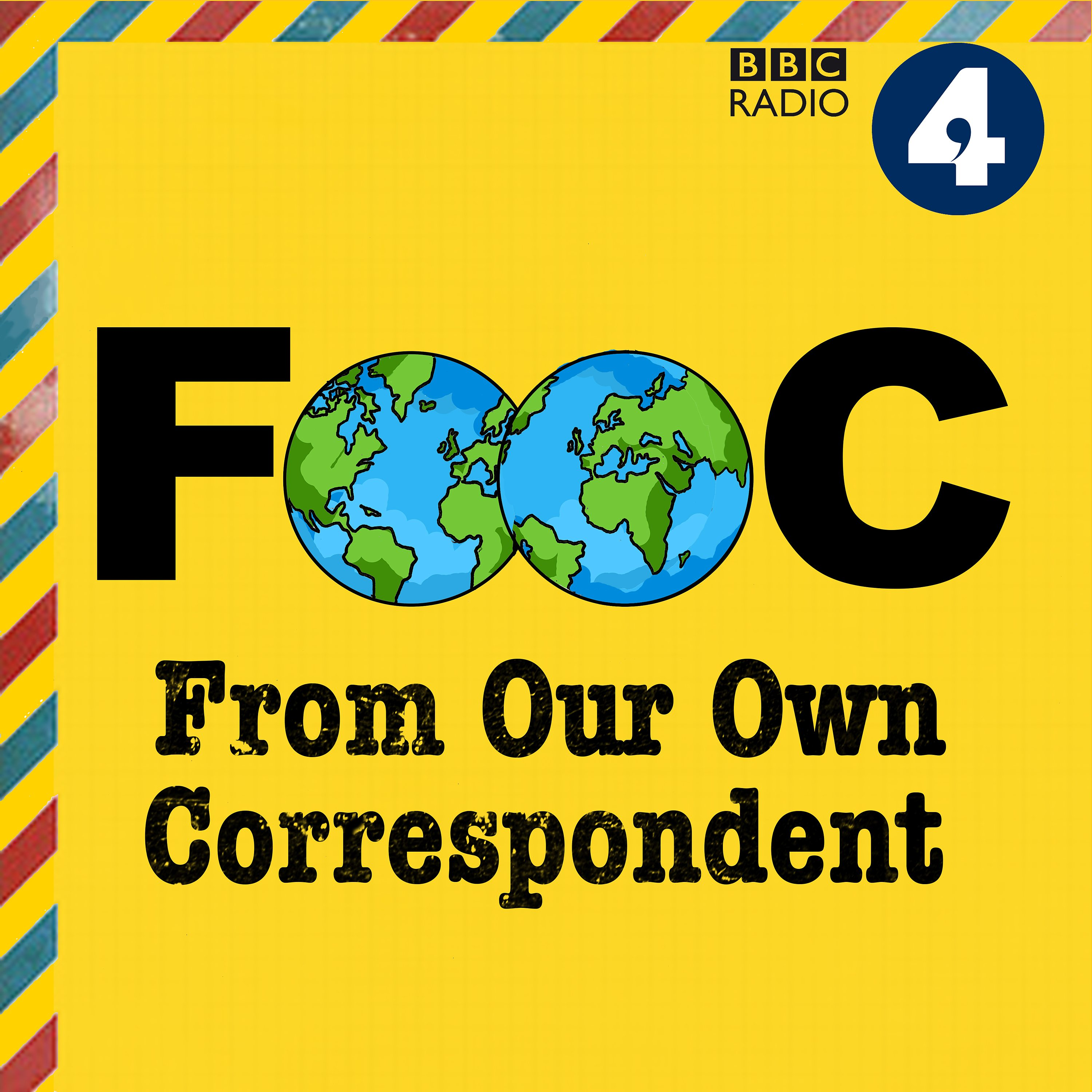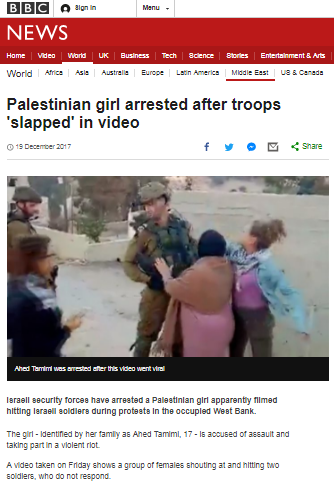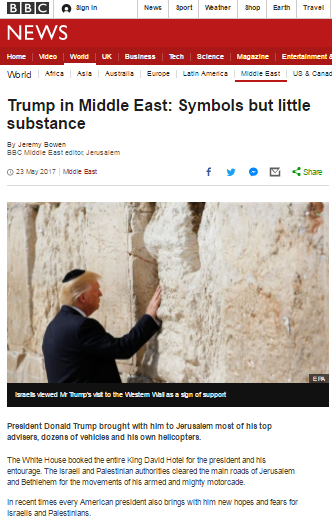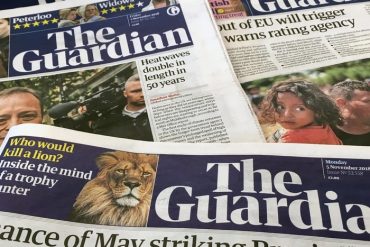On December 25th visitors to the BBC News website’s main homepage, its ‘World’ page and its ‘Middle East’ page found a report presented as follows:
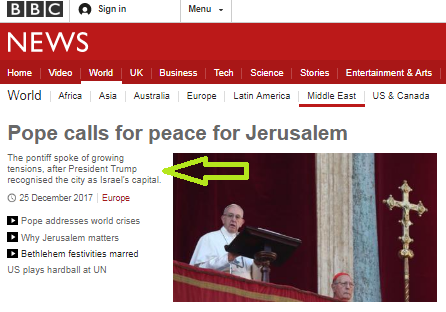
Contrary to the impression given by that presentation, the Pope’s Christmas address did not include any mention whatsoever of the US president or his December 6th announcement recognising Jerusalem as Israel’s capital.
The BBC article reached by clicking on that link – titled “Urbi et Orbi: Pope calls for peace for Jerusalem” – is 401 words long. Twenty-one of those words related to the US president: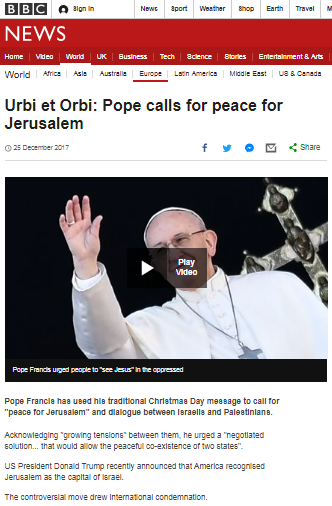
“US President Donald Trump recently announced that America recognised Jerusalem as the capital of Israel.
The controversial move drew international condemnation.”
Seventy-four words were devoted to the topic of the non-binding resolution passed the previous week by the UN General Assembly.
“Last week, UN members decisively backed a non-binding resolution that said any decisions regarding the status of Jerusalem were “null and void” and must be cancelled. […]
Guatemala has said it plans to move its embassy in Israel to Jerusalem, following Mr Trump’s announcement.
It joined the US and Israel, and Honduras, the Marshall Islands, Micronesia, Nauru, Palau and Togo, in voting against the UN resolution.
However, 128 countries backed the resolution while others abstained.”
A total of 155 words were used to provide background information – in part politically partisan and lacking sufficient historical context – concerning Jerusalem.
“Palestinians want East Jerusalem as their future capital, and all countries currently keep their embassies in Tel Aviv. […]
Jerusalem is home to sites sacred to Judaism and Islam, and because of its role in the life of Jesus, the city is also one of the holiest places for Christians.
The city’s status goes to the heart of the Israeli-Palestinian conflict.
Israel regards Jerusalem as its “eternal and undivided” capital, while the Palestinians claim East Jerusalem – occupied by Israel in the 1967 Middle East war – as the capital of a future Palestinian state.
Israeli sovereignty over Jerusalem has never been recognised internationally and, according to the 1993 Israel-Palestinian peace accords, the final status of Jerusalem is meant to be discussed in the latter stages of peace talks.
Since 1967, Israel has built a dozen settlements, home to about 200,000 Jews, in East Jerusalem. These are considered illegal under international law, though Israel disputes this.”
The Papal address itself was given 151 words of coverage with one hundred and three of those words relating to Israel and the Palestinians and a mere 25 words relating to the rest of the world.
“Pope Francis has used his traditional Christmas Day message to call for “peace for Jerusalem” and dialogue between Israelis and Palestinians.
Acknowledging “growing tensions” between them, he urged a “negotiated solution… that would allow the peaceful co-existence of two states”. […]
The Roman Catholic leader gave his Urbi et Orbi speech, which in Latin means “To the city and world”, in Saint Peter’s Square.
“On this festive day let us ask the lord for peace for Jerusalem and for all the Holy Land,” he told the crowd.
“Let us pray that the will to resume dialogue may prevail between the parties and that a negotiated solution can finally be reached, one that would allow the peaceful co-existence of two states within mutually agreed and internationally recognised borders.”
The pontiff’s speech touched on other pressing international issues, from the migration crisis to the conflicts in Syria and Iraq, from Venezuela to North Korea.”
BBC audiences would clearly get the impression from that report that the focus of the Pope’s address was on Israel and the Palestinians and that he merely “touched on” other issues.
However, examination of the actual 932 word address delivered by the Pope shows that while he used 118 words to speak about the Palestinian-Israeli conflict, he devoted 439 words to speaking about other topics including Iraq, Syria, Yemen, Africa, Venezuela, North Korea, Ukraine, Myanmar, Bangladesh, children of unemployed parents, migrants and child labour.
So while 80.5% of the BBC’s coverage of the speech related to the Palestinian-Israeli conflict, in fact that topic featured in just 21.2% of the parts of the address relating to specific countries and issues and in 12.7% of the speech as a whole.
Obviously the BBC News website cannot claim to have reported that Papal address in a manner that accurately and impartially reflects its content and its focus.

